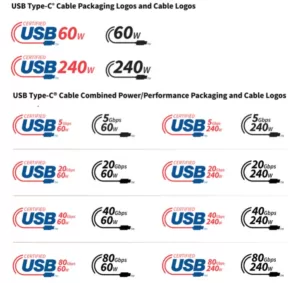
Introduction
Selecting the perfect laptop can be a daunting task, especially for those who aren’t tech enthusiasts. With the ever-evolving world of computer hardware, the choices are vast and often overwhelming. In this guide, we aim to simplify the decision-making process by focusing on one key aspect: the processor. We’ll help you understand which processor is best for a gaming laptop and which one suits a slim and lightweight ultrabook.
- Gaming Laptop: Powerhouse Processors
Gaming laptops are designed to handle resource-intensive tasks, making them ideal for gamers, content creators, and professionals who demand top-tier performance. The processor is the heart of any computer, and in the gaming world, you’ll want a processor that can handle the most demanding games and multitasking without breaking a sweat.
a. Quad-core or Higher:
- Look for processors with at least four cores (or even more if possible). Multi-core processors help distribute the workload efficiently, enhancing overall performance.
- Intel Core i7 and AMD Ryzen 7 series are excellent choices for gaming laptops.
b. High Clock Speed:
- A higher clock speed (measured in GHz) allows your laptop to process instructions quickly, crucial for smooth gameplay.
- Ideally, go for processors with a base clock speed of 2.5 GHz or higher.
c. Hyper-Threading (Optional):
- Some processors support hyper-threading, which essentially doubles the number of threads. This can be beneficial for multitasking but is not a strict requirement for gaming.
Here are some specific examples of good processors for gaming laptops:
- Intel Core i7-12700H
- Intel Core i9-13900HK
- AMD Ryzen 7 6800H
- AMD Ryzen 9 6900HX
- Ultrabook: Balancing Power and Portability
Ultrabooks are known for their sleek, lightweight designs and portability. They are perfect for professionals and students who need a laptop for everyday tasks, such as web browsing, office applications, and media consumption. When choosing a processor for an ultrabook, you don’t need the same raw power as a gaming laptop, but efficiency and battery life become paramount.
a. Dual-core or Quad-core:
- Ultrabooks typically feature dual-core or quad-core processors. Dual-core is sufficient for basic tasks, while quad-core offers better performance for multitasking.
- Intel Core i5 and AMD Ryzen 5 processors are commonly found in ultrabooks.
b. Low Power Consumption:
- Look for processors with a low thermal design power (TDP). Lower TDP processors generate less heat and consume less power, resulting in longer battery life and quieter operation.
c. Integrated Graphics:
- Ultrabooks often come with integrated graphics, which are suitable for everyday tasks and light gaming. Dedicated graphics cards are not necessary unless you plan to do intensive graphical work or gaming.
d. Turbo Boost Technology:
- Intel’s Turbo Boost and AMD’s Precision Boost technologies are great for ultrabooks. They allow the processor to increase its clock speed temporarily when needed, providing a performance boost without sacrificing efficiency.
Here are some specific examples of good processors for ultrabooks:
- Intel Core i3-1210U
- Intel Core i5-1230U
- AMD Ryzen 3 6300U
- AMD Ryzen 5 6600U
Conclusion
In the world of laptops, the processor is a critical component that greatly influences your overall computing experience. Understanding your specific needs and the demands of your intended usage is key to making the right choice.
For gaming enthusiasts and power users, a laptop with a robust processor, such as an Intel Core i7 or AMD Ryzen 7, is essential for seamless gaming and multitasking. On the other hand, those seeking portability, long battery life, and everyday usability will find dual-core or quad-core processors, like Intel Core i5 or AMD Ryzen 5, more than adequate in an ultrabook.
Remember that while the processor is crucial, other factors like RAM, storage, and display quality also play significant roles in determining the overall performance and usability of your laptop. It’s best to consider these factors holistically to ensure that your chosen laptop meets your needs perfectly.









